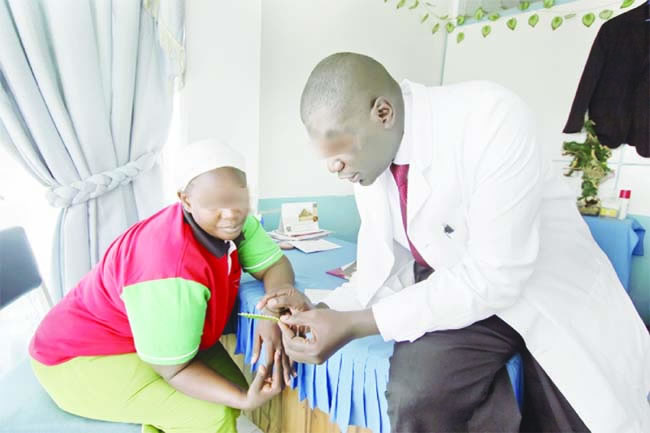Self-care is becoming more prevalent across industries to empower consumers and increase convenience. In financial services, digital solutions such as mobile payments have empowered women to take control of their finances by overcoming barriers in dealing with formalised banking institutions.
Even in healthcare, self-service is shifting as patients have more access to digital tools and information on managing their health. Health system portals allow patients to schedule appointments, access their medical history, update forms, review doctor’s recommendations and ask questions.
For years women have been practising self-care for their reproductive health. Women self-testing, self-screening and user controlled prevention tools have radically changed both the prevention and treatment of HIV/STIs.
The same momentum is growing around the self-injected of contraceptives, particularly because women and adolescent girls place a high priority on privacy, convenience, and affordability when it comes to contraceptive service. Sometimes women stop using contraception due to access challenges or concerns about a method even though they want to avoid pregnancy or space their births.
Self-injected contraceptives is perhaps the most important near-term opportunity for women who stopped using injectable contraception due to access challenges, lengthy travel times and long lines at the clinic or concerns about a method even though they want to avoid pregnancy or space their births.
For young women and adolescents, who often have higher rates of injectable contraceptive discontinuation than older women and highly value privacy, self-injection gives them an opportunity to use contraception independently and discreetly over a longer period of time.
Traditionally, injectables are delivered with a needle and syringe and injected into a muscle using a product known as intramuscular DMPA (DMPA-IM). Also, “the depot medroxyprogesterone acetate (DMPA) injectable contraceptive, what is commonly referred to as Sayana press, is the same as DMPA (DMPA-IM) and it comes in a single device that women after training can self inject into the fat underneath their skin,” Senior learning advisor, Society for Family Health’s Delivery Innovation on Self Care (DISC) project, Dr Oluwatosin Adeoye stated.
“What many women see as self-care is probably when they take pills, apply an ointment to an aching leg or plaster a wound. They feel that anything that has to do with injection should be handled by healthcare providers
According to Dr Adeoye “Sayana press contains the same chemical substance as the product many women call DEPO but in a lower dose. It is a very effective contraception that women can stay back in their homes and inject themselves every three months, especially in the context of COVID-19, distance from a health facility or busy schedules that leave no time to come to the health facility,” he said
According to him, “it comes with a lot of benefits; women are able to take responsibility for their health care; we call it empowerment. She is doing it herself; it is discreet and nobody has to know about it. She walks into the pharmacy, buys it and then injects herself as at when due since she is trained by a provider on how to do it. It saves time and money- time and money spent visiting the health facility to have the injectable contraception (intramuscular DMPA (DMPA-IM)).”
Dr Adeoye declared that women on Sayana plus also can stop its use when they are ready to get pregnant and wouldn’t have to go back to the health facility because their ovulation will resume and could get pregnant.
Women need not fear having to self inject the contraception. According to him, “from our survey, there is the fear of pain, wrongly injecting themselves, injecting a wrong dose and fear of how to dispose of the injection’s waste. But a quick study among young women who are already using self-injection contraception found that the pain is not so significant. One of the females already self-injecting said it is like someone just pinching her.”
“Self-injection is not new. Some diabetes patients give themselves insulin injections, which are a daily dose, and this cuts across all ages, social status and educational backgrounds. So, women don’t need to fear self-injected contraceptive every three months. They don’t have to fear underdosing or overdosing since it comes as a single dose or damaging an organ since it is given into the fat under the skin.”
Adeoye declared that aside from returning the injection waste to the health facility for disposal, it can also be buried after use or disposed into a pit latrine.
He added, “in the spate of a year, they only have four injectables to dispose of, and they can store the used ones in a plastic water bottle and drop it off when they have the opportunity while passing a health facility close to them.”
Director, Reproductive Health Unit of the Federal Ministry of Health, Dr Kayode Afolabi, speaking at the opening of training on delivering innovation in self-care for family planning coordinators in Oyo State, stated that the injectable contraception, brand name Sayana Press is an all-in-one contraceptive, a major part of self-care and a game-changer.
According to him, “it gives an opportunity for self-injection, which is a major part of self-care and puts women in charge of their reproductive health. It is a three-monthly contraceptive method.”
Afolabi, consultant obstetrics and gynaecologist, therefore charged the family planning providers to increase awareness on the self-injectable contraceptive, allay fears of women on the product and teach on how to dispense the waste in the community.
YOU SHOULD NOT MISS THESE HEADLINES FROM NIGERIAN TRIBUNE
Lagos Is Second Least Liveable City In The World For 2021
Lagos is the second least liveable city in the world for the year 2021. This is according to the most recent annual ranking put together by the Economist Intelligence Unit (EIU)…
CLAIM 1: A Twitter user claims UNICEF said any efforts to block children from accessing pornography might infringe their human rights.




